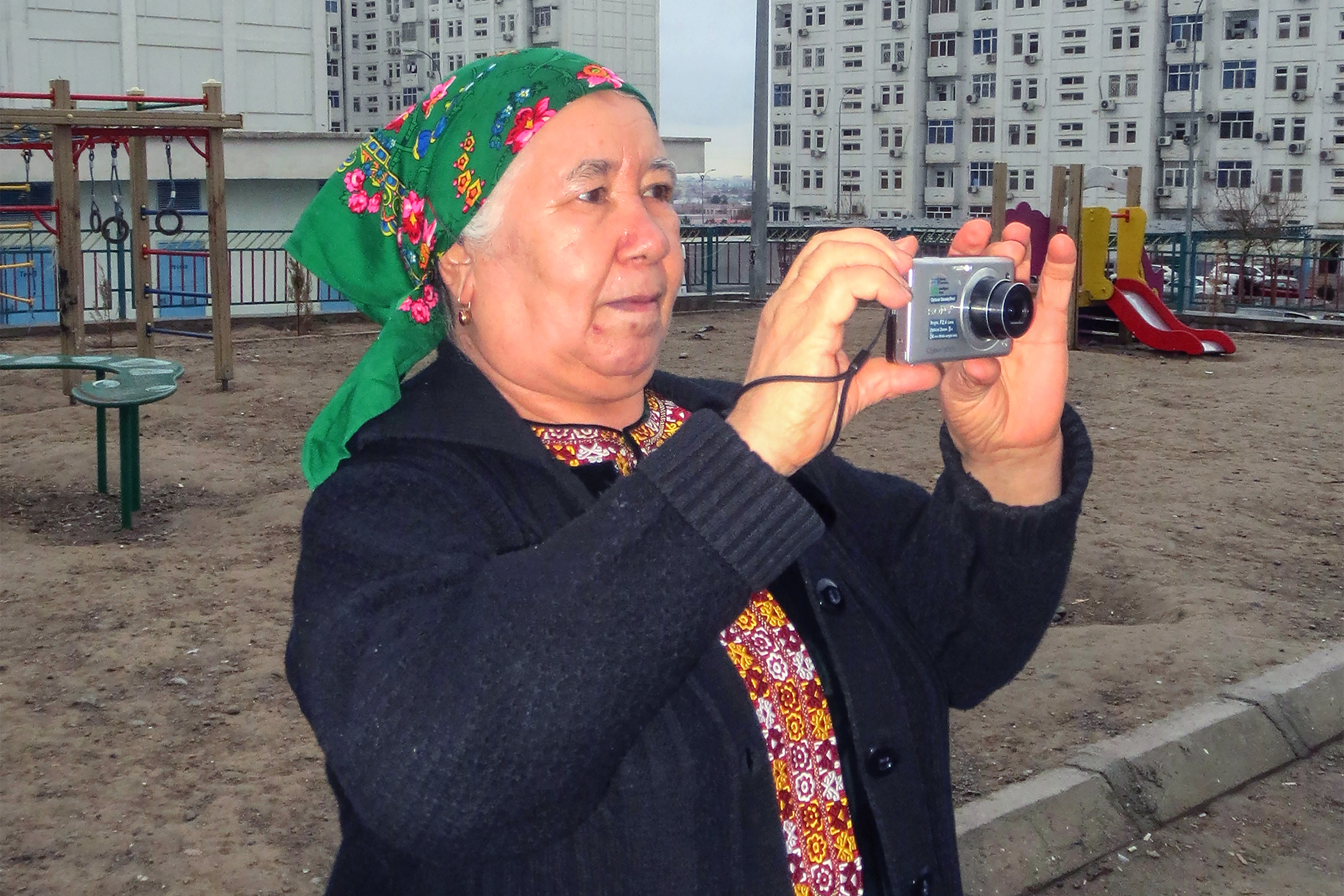RFE/RL Turkmen correspondent Soltan Achilova reports (in Turkmen) she was threatened with death on July 29, while en route to taking photos documenting Turkmenistan’s “Day of Bicycles.” Achilova further reports that today (July 31), the man who made the July 29 threat identified himself to her as a police officer tasked to watch her wherever she goes, and again warned her against taking photos, or she will be “finished.” The threats follow an assault last week when a man tried to steal her cellphone as she was about to take a picture.
The recent attacks on Achilova, 68, resemble assaults she experienced in November 2016, when two women approached her, yelling “This is the one who takes pictures and pours dirt on Turkmenistan” in the cafeteria at a rehabilitation center northeast of the capital, Ashgabat. This attack came one day after Human Rights Watch issued a statement decrying an October 25 assault on Achilova, saying “Achilova’s ordeal was clearly yet another orchestrated attempt to silence a critic.”
“Journalism is not a crime, in Turkmenistan or elsewhere in the modern world. Soltan’s life has now been explicitly threatened in an effort to stop her from doing her job in Turkmenistan,” said RFE/RL President Thomas Kent. “The Turkmen government must immediately put an end to the persecution of Soltan Achilova and assure her safety.”
Achilova’s reports appear regularly on the website of RFE/RL’s Turkmen Service, known locally as Azatlyk Radiosy. According to Turkmen Service Director Farruh Yusupov, she is one of the main contributors to the website of photos and videos from within Turkmenistan. Recently, the focus of her reporting has been the government’s preparations for the Asian Games, including a story on the removal of a statue of former Turkmen President Saparmurat Niyazov from a major thoroughfare in the capital, Ashgabat.
Attacks on RFE/RL contributors in Turkmenistan, one of the world’s most closed societies, have intensified over the past three years. Saparmamed Nepeskuliev, a video journalist who contributed to the Turkmen Service, disappeared more than two years ago, and is now in prison on narcotics charges that rights groups say were “trumped up” in retaliation for his reporting on decrepit infrastructure and economic inequality in the country’s western region. (He was released in 2018). After filing video reports about local life in Turkmenistan’s northern Dashoguz province, correspondent Khudayberdy Allashov was taken into custody and severely beaten in December 2016; he and his mother were subsequently jailed for three months on charges of possessing chewing tobacco, a product that is widely used in Turkmenistan and is not known to have led to any previous arrest. In December 2014, Achilova was questioned by unidentified men in civilian clothing, as she interviewed people waiting to purchase fresh meat that had suddenly become available in shops around the country.
The United States, the OSCE, and media advocacy organizations have expressed concern about Turkmenistan’s persecution of journalists.
Turkmenistan is ranked “not free” in Freedom House’s 2017 press freedom survey of 199 countries and territories, tied with North Korea at the bottom of the scale with 98 points out of 100.
Because of political conditions, RFE/RL has no bureau inside Turkmenistan, working instead through a local network of contributors to provide the country’s only Turkmen-language alternative to state-controlled media. Its Turkmen Service website logged a monthly average of 440,000 visits and 800,000 page views in 2016, and it has 175,000 followers on Facebook.
